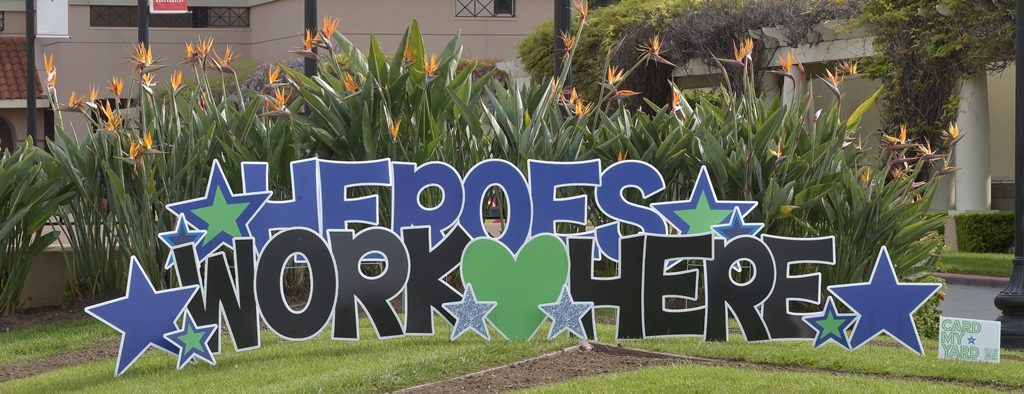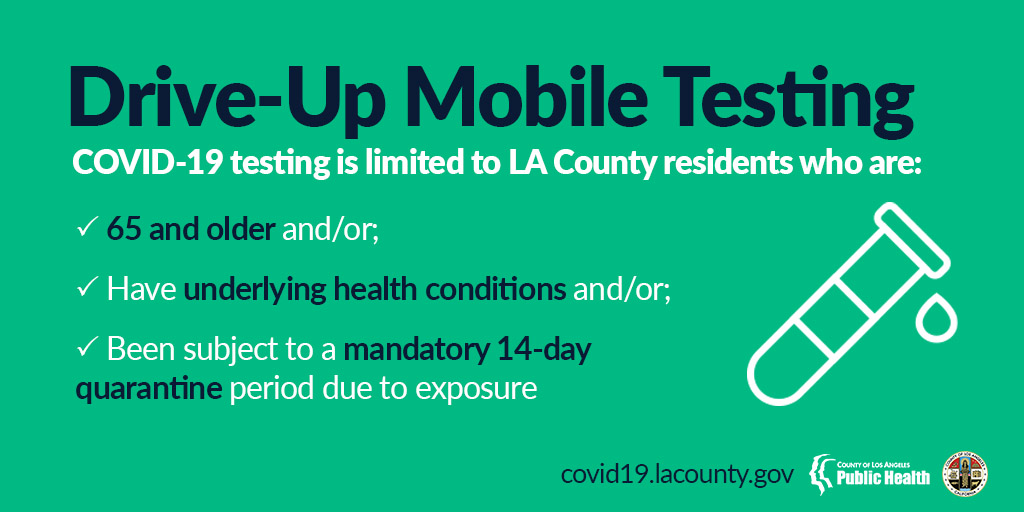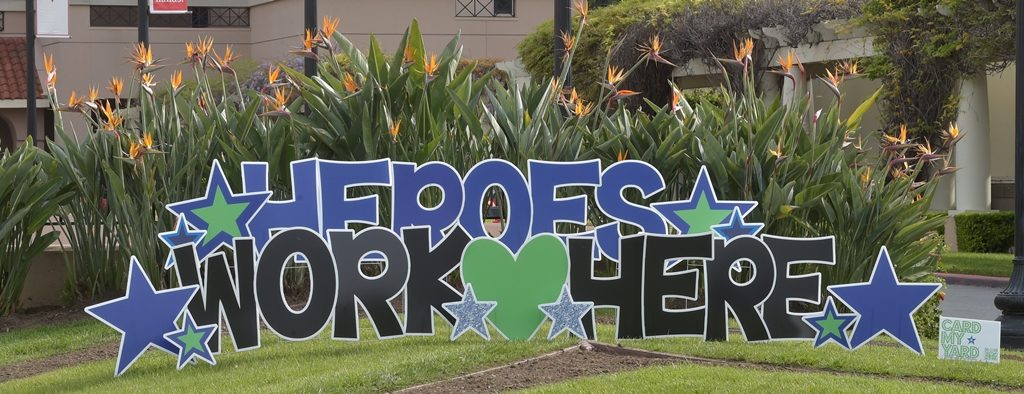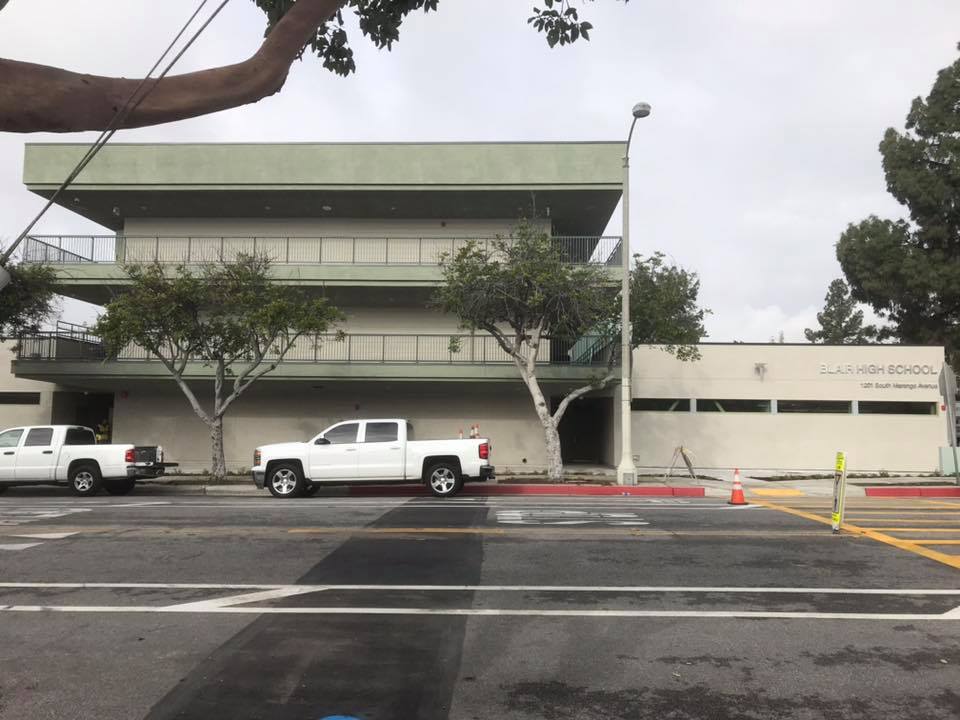
Editor’s Note: A previous version of this article mistakenly stated that Methodist hospital has no COVID-19 patients. Methodist has treated COVID-19 patients.
‘The testing process has been an ongoing challenge at all levels’ – Huntington Hospital
By Terry Miller
First, it was the massive Jacob Javits Center in New York which was converted to a massive field hospital. Then parts of Central Park were converted into a temporary hospital. The trend, along with the help of the U.S. Army Corps of Engineers is taking shape all over the country as the pandemic spreads.
In Los Angeles, the Convention Center has now been designated as a field hospital site and the as the virus grows, so does the need for hospital beds in every state. Ironically, many of these field hospitals and the Navy’s Mercy floating hospital are not equipped to handle confirmed COVID-19 cases; they are there to offset the number of patients who might be seeking physicians’ assistance for conditions unrelated to the pandemic.
As in New York, California is now requesting help from retired nurses, doctors and other health care providers to battle this COVID-19 war on the frontlines.
Governor Gavin Newsom on Monday issued a call for health care workers to participate in a new initiative intended to help meet a possible surge in COVID-19 patients in the coming weeks.
Doctors, nurses, EMTs and others who are currently not practicing can sign up at covid19.ca.gov/healthcorps. Licensed medical professionals and graduating students can register. Those who qualify will be paid and given malpractice insurance coverage.
Newsom announced the initiative as the state saw a doubling of COVID-19 patients in hospitals and the tripling of patients in intensive care units in the four days before the announcement.
There have been reports that nurses and doctors are put at risk due to the lack of personal protective equipment (PPE). We contacted Methodist Hospital Tuesday about these allegations:
“The top priority for Methodist Hospital at all times is patient safety and the safety of our staff. To that end, Methodist Hospital provides all necessary Personal Protection Equipment (PPE) including masks to all of our nurses and staff to ensure that they remain safe from spread of COVID-19. Importantly, Methodist Hospital has sufficient masks for all employees who need a mask. There is no need, nor is it safe, for any nurse to bring in their own mask. We have never run short of masks, and are prepared with sufficient quantities of masks to ensure the safety of patients and all staff through any projected surge of COVID-19 patients,” Brian Greene, director of Business Development, Marketing & Community Outreach at Methodist Hospital.
Greene said the hospital staff is accepting donations of the following items:
- Single-use face masks -no homemade masks.
- N95 or KN95 masks (NIOSH-certified).
- Nitrile gloves (non-latex).
- Paper or plastic medical gowns.
- Hand sanitizer (60% alcohol).
- Disinfectant wipes.
For large quantity donations, email donatePPE@methodisthospital.org for drop-off instructions.
We asked Pasadena’s Public Information Officer Lisa Derderian a few questions Monday:
Q: Is the Pasadena Fire Department stretched and how are the 911 calls? (Have they increased significantly in recent weeks?)
A: Our calls have slightly decreased because schools, businesses are closed and less traffic but several other states are starting to see an uptick so we may follow.
Q: Is Pasadena planning (or making contingency plans) for use of the Rose Bowl, Convention Center, etc. for possible field hospitals should the need arise?
A: We are in constant communications with Huntington Hospital and have options if the need exists.
Q: Are there other city facilities that could be put into use, should the worst scenario transpire?
A: We are ready to use city facilities if the need exists…
Derderian concluded that the city is prepared to help the hospitals in a “joint effort but requires careful consideration regarding staffing, logistics, mass feeding, etc.”
How has Huntington Hospital prepared? We asked Huntington Hospital public relations spokesperson Dorey Huston who had this to say:
“Communities around the world are experiencing an ongoing patient surge from COVID-19 that is creating immense strain on medical supplies and caregivers. Huntington is implementing multiple preventative measures now in the event that a similar situation happens in our community:
- We have set up surge tents in case we need to expand our capacity to screen patients who require hospital care.
- We have a surge plan that we will activate when needed to ensure all beds at the hospital are available to care for the patients most in need.
- We are working with the City of Pasadena to explore alternative care site options for our community should a patient surge occur and we need more beds than we have available.
- We have temporarily restricted visitors from our campus, as well as canceled all elective surgeries.
- We are actively asking for donations from our communities for certain unused and unopened medical supplies, as well as blood and financial donations.
- We are watching closely what hospitals around the nation and world are doing to respond to this pandemic, and we are regularly reviewing and updating our protocols as necessary. Our caregivers are working around the clock to ensure our patients continue to receive the care they need, and the hospital continues to look for ways to care for our caregivers as well.
“The testing process has been an ongoing challenge at all levels, and we have been diligently working all possible channels to send our tests out. We are also hoping to have an in-house option soon. Due to the overwhelming volumes of tests, the labs running the tests have had significant delays in providing results. Even so, Huntington Hospital continues to only order tests for patients with possible COVID-19 who require emergency care and are showing related symptoms – for example, patients experiencing a very high fever and shortness of breath.
“Patients who do not exhibit COVID-19 symptoms or aren’t ill enough to seek care in an emergency setting should call their primary care provider. If a patient does not have a primary care provider, we strongly urge them to look for one. Patients can also call urgent care if they are too sick to stay home but not sick enough to require emergency or hospital care.
“At this time, the hospital has adequate supplies to treat those under its care, however as more fall ill and require hospitalization, more resources will be needed. Like other hospitals around the world, Huntington Hospital has faced an ongoing strain on critical hospital supplies due to the COVID-19 pandemic. While we continue to work with local health and other government authorities to address these issues, we are also asking our communities for donations during this unprecedented time.
“We want to be able to provide high quality care to all of those who need our services. We are working with the City of Pasadena to explore alternative care site options for our community should a patient surge occur, and we need more beds than we have available. The state has asked us to be able to increase our capacity by 40% and we have a surge plan that we will activate when needed to ensure all beds at the hospital are available to care for the patients most in need. We are also collaborating with local public health departments as well as other hospitals via the Hospital Association of Southern California and the California Hospital Association.
“This virus is yet to be fully defined, so everyone should take great precaution. For example, we know the pattern of the flu – how it impacts various groups of society. COVID-19 is proving to be much more serious than the flu for about 15% of the people who fall ill; this is NOT limited to those who are over 65, though older age groups do seem to be more vulnerable. The COVID-19 infection can begin with typical flu-like symptoms, such as a fever or cough, but can rapidly evolve into shortness of breath, with persistent pain in the chest, confusion and bluish lips or face. It can also be relatively asymptomatic. We do not yet understand why it affects people so differently nor are we able to entirely predict who will be severely infected and who will not.
“Because this is a communicative disease that is transmitted to other human beings through droplets, if a sick person or unknown carrier touches a doorknob or coughs, a healthy person could potentially contract the virus after touching the same doorknob or by being in the vicinity of the person who coughed. Given its severity in some cases, great precaution is the best possible defense. Additionally, we do not have a medicine that can cure COVID-19, so if you were to exhibit these emergency symptoms, the hospital could only provide supportive measures and life-saving intervention.
“This is why it is so important to practice social distancing or self-isolation to flatten the curve. Doing this is the best way to help hospitals through this time and lessen the anticipated patient surge. With that, alongside the generosity of our community, we will get us through this together.”
On Monday New York Governor Andrew Cuomo urged health care workers from other states to join the fight against coronavirus in New York state where the number of deaths has skyrocketed.
It was announced Tuesday that Cuomo’s brother had tested positive for the virus.
“As governor of New York, I am asking health care professionals across the country: If you don’t have a health care crisis in your community, please come help us in New York now,” Cuomo said.






